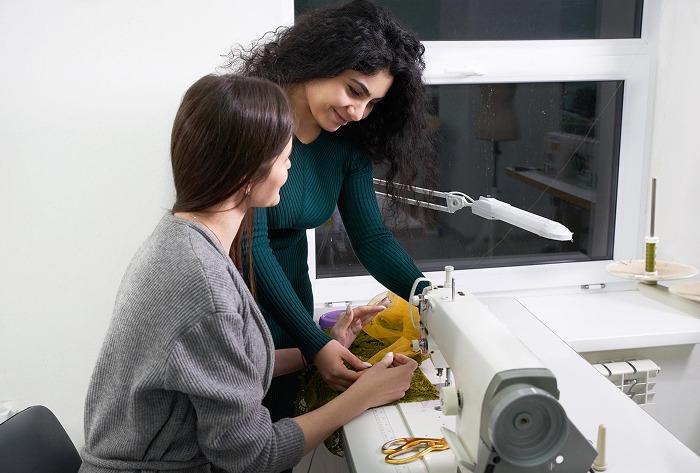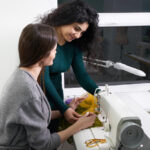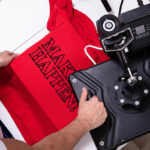
Avoid Thread Breakage & Tension Headaches: How to Pick the Best Thread for Sewing Machine
Whether you’re a seasoned professional or a hobbyist, thread breakage and tension problems can quickly take the joy out of sewing. Understanding how to choose the best thread for sewing machine use is essential to maintaining stitch quality, protecting your equipment, and achieving long-lasting results.
This guide walks you through practical tips and expert insights, backed by years of experience from the team at ProStitch Embroidery.
Understanding the Importance of Thread Quality
Thread is not just an accessory—it’s a core component of every stitch. Low-quality thread can lead to breakage, poor tension, skipped stitches, or even damage to your machine. That’s why choosing good quality thread for sewing machine work is critical for both professionals and hobbyists.
At ProStitch, we’ve found that premium thread delivers consistent results, reduced downtime, and a polished finish on every project.
Common Problems Caused by the Wrong Thread
- Frequent thread breakage
- Tension imbalance
- Fuzz or lint buildup inside the machine
- Poor stitch definition
- Color bleeding or fading
These issues are often preventable with the right thread choice.
What to Look for in the Best Thread
1. Material: Polyester vs Cotton vs Rayon
- Polyester Thread: Strong, vibrant, UV and chemical-resistant. Ideal for embroidery and garment sewing.
- Cotton Thread: Great for quilting and traditional sewing, but more lint-producing and less durable.
- Rayon Thread: High sheen but delicate—mainly used in decorative embroidery with slower speeds.
ProStitch Tip: For high-volume embroidery, always go with high-stretch, durable polyester thread.
2. Thread Thickness and Weight
Thread weight affects stitch visibility and tension settings. The lower the number, the thicker the thread:
- 40 wt: Industry standard for embroidery—strong and smooth.
- 60 wt: Finer thread for detail work or small lettering.
- 30 wt: Thicker for bold fills and prominent designs.
3. Spool Size and Winding
Use large cones for commercial use and cross-wound spools for high-speed machines. Evenly wound spools prevent tension issues and tangling.
4. Lint Content and Cleanliness
Choose tightly spun, coated threads with low lint. These reduce maintenance, improve stitch quality, and protect your machine.
Best Thread Choices by Application
Embroidery Projects
- Recommended: 40 wt polyester thread
- Best for: Logos, monograms, fine artwork
- Why: Shine, strength, and wash-resistance
Garment Construction
- Recommended: 50 wt polyester or cotton-wrapped polyester
- Best for: Durable seams and stretchable garments
- Why: Balanced tension and strength
Quilting
- Recommended: Cotton or cotton-poly blend
- Best for: Natural look with cotton fabrics
- Note: Clean machine frequently due to lint
Decorative Stitching
- Recommended: Metallic or rayon threads
- Best for: Special effects, topstitching
- Note: Use slower speeds and a metallic needle
Tips to Avoid Thread Breakage and Tension Issues
- Use compatible needles: The right needle size and type prevents fraying.
- Clean machine regularly: Remove lint from bobbin and tension discs.
- Adjust tension settings: Always test before beginning a project.
- Store threads properly: Keep threads in a cool, dry, dust-free place.
Why ProStitch Chooses Only the Best Threads
We rely on industrial-strength polyester threads in all ProStitch embroidery orders to ensure:
- Maximum durability
- Color fade resistance
- Perfect color matching
- Flawless stitching at high speed
As experts in online embroidery digitizing and patch production, we only use threads that perform under pressure.
Need Expert Help?
ProStitch offers embroidery digitizing, patch production, and vector artwork using top-tier materials and thread.
Visit: ProStitchOnline.com to get started today.
Final Thoughts
Choosing the best thread for sewing machine success isn’t guesswork—it’s about knowing your material, thread weight, and equipment compatibility.
For clean results and fewer issues, always select high-quality polyester thread for sewing machine use. At ProStitch, we help you stitch smarter and stronger—every time.




